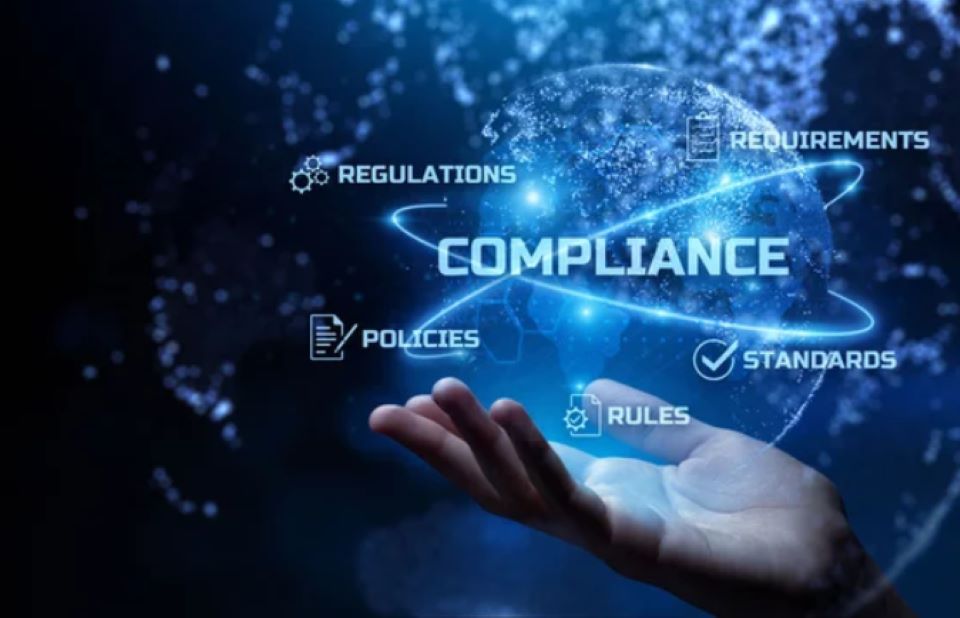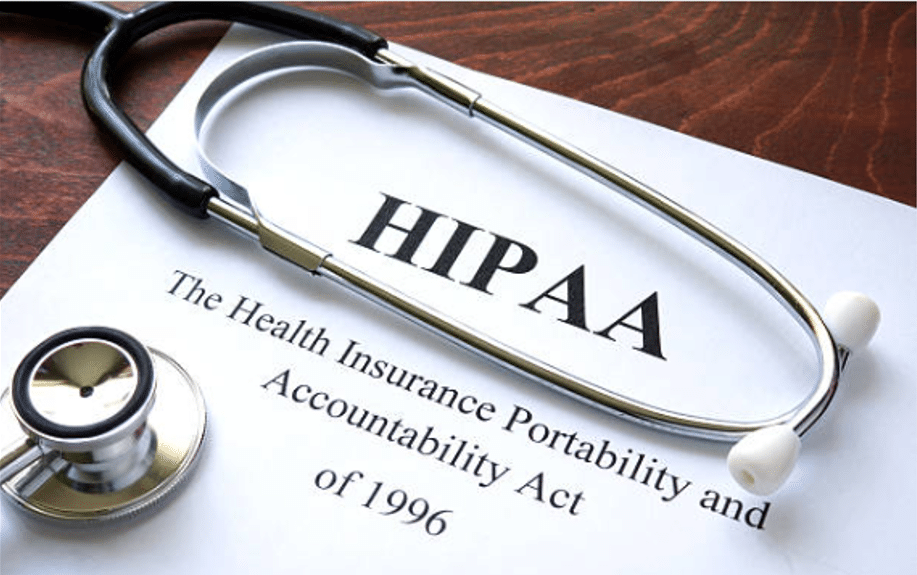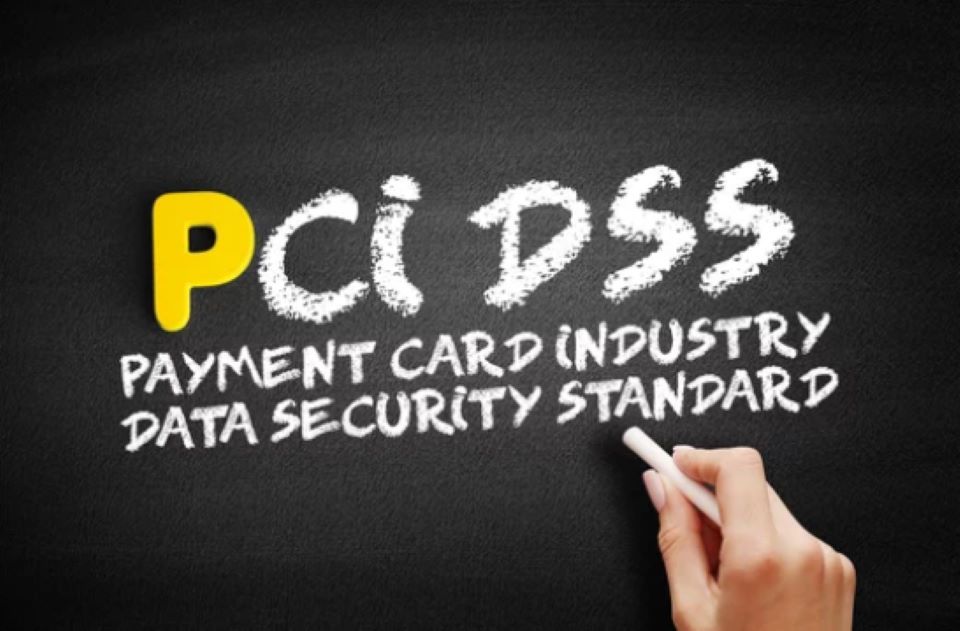The Essentials of PCI and HIPAA Compliance in Cloud Security
A relatively recent innovation in technology, introduced as Cloud computing, has revolutionized the business landscape. Cloud platforms, and Cloud Computing, have a booming popularity among businesses in several industrial sectors. It is increasingly being regarded as one of the core elements of modern businesses due to its unmatched flexibility and scalability features. But with this change, comes the need for more vigilance, and therefore the businesses are required to abide by regulations such as the Health Insurance Portability and Accountability Act (HIPAA), Payment Card Industry Data Security Standard (PCI DSS), and various other guidelines. This is because most businesses, especially the ones that handle financial and medical data of clients in particular have an important obligation to maintain the security and privacy of this sensitive data. In this blog, we will explore the essentials of PCI and HIPAA compliance in cloud security, offering business organizations an in-depth manual for safeguarding their sensitive information.
What is HIPAA compliance in Cloud?
HIPAA is a federal act that establishes guidelines for the security of medical information. Healthcare professionals, insurance providers, and other business partners involved must make sure that the confidential medical information of clients is kept private, genuine, and readily accessible.
HIPAA and compliance : Essential Elements of HIPAA Compliance in Cloud Security
HIPAA compliance in the cloud involves a thorough and strategic process to safeguard PHI (Public Health Information). Choosing a Cloud Service Provider and signing a Business Associate Agreement (BAA) with them, mainly if the CSP provides HIPAA-compliant services, is the first step in the process.
To protect PHI, organizations are required to put technological, administrative, and physical security procedures in place.
- Physical measures for safeguarding include securing the physical access controls and data centres.
- Administrative measures include rules and protocols for accessing and handling data.
- Technical measures mainly include audit logs, access controls, and encryption to maintain data integrity.
HIPAA requirements :
Access Controls: HIPAA requires that PHI (Protected Health Information) be tracked to help ensure only those individuals who have the authorization can access it.
Auditing: This requires regular, periodic audits to look into the usage patterns and access to PHI.
Security Management: Implementing rules and regulations to prevent security incidents, and also to identify, and respond to security incidents in case one does occur.
Training & Awareness: Makes sure that every employee who deals with PHI gets training on best practices for privacy and security.
What is PCI Compliance in Cloud?
PCI DSS is a set of security guidelines to ensure that a secure environment is maintained by all businesses that accept, handle, store, or transmit credit card information. It is applicable to all different types and sizes of organization.
What are the 4 levels of PCI compliance?
Any business organization that handles and processes credit card transactions needs to have an understanding of the 4 levels of Compliance involving PCI DSS (Payment Card Industry Data Security Standard). These levels classify businesses into 4 categories based on the number of transactions they process on an annual basis and lays out specific conditions that must be met as the criteria for compliance at each level. Let’s have a look at each level in more detail:
Level 1: Businesses with a High Number of Transactions –
Businesses that process more than six million card transactions in a year are required to meet the Level 1 compliance guidelines.
This level also covers any businesses that have experienced a security breach. Businesses must submit a ‘ROC’ or Report on Compliance, along with going through a yearly on-site assessment by a Qualified Security Assessor (QSA) for them to reach Level 1 compliance. In addition to that they must get quarterly network scans performed by an Authorized Scanning Vendor also called ASV.
Level 2: Businesses with a Medium Number of Transactions –
Businesses that process one million to six million card transactions in a single year are categorised in the Level 2 Compliance. At this level, the businesses need to complete a yearly Self-Assessment Questionnaire (SAQ) and also quarterly network vulnerability checks conducted by an ASV. Even though compared to the Level 1 guidelines, these may be less stringent, but still remains important to maintain strong security measures for safeguarding the cardholder data.
Levels 3 – Businesses with Small to Mid-Amount of Transaction –
Businesses that process 20,000 to 1 million online transactions annually are categorized in level 3 compliance. These businesses also need to submit a yearly SAQ and as well as having to get quarterly network scans performed by an ASV. The primary emphasis here is on making sure that SMB companies, even if they are smaller businesses with lesser transaction volumes, they still must not neglect the critical security guidelines and must take all the necessary measures.
Level 4 -Businesses with Low Number of Transactions –
The level 4 compliance includes the businesses that process less than 20,000 online transactions annually, while they may have higher transactions through other channels. These businesses also need to undergo quarterly network scans performed by an ASV and a yearly SAQ. Even with a reduced transaction volume, Level 4 businesses need to be on the alert for security breaches and must take the necessary measures to safeguard client information.
PCI DSS requirements :
Encryption: To prevent unwanted access, the encryption of cardholder data is required, both during transit as well as afterward when it is kept and stored, to ensure there is minimum to no risk.
Access Controls: Otherwise similar to HIPAA, although designed specifically to provide authorised or permitted personnel with access to cardholder data.
Network Security: To safeguard cardholder data, stringent network security measures need to be implemented, like anti-virus software, and firewalls among some measures.
Regular Monitoring and Testing: Requires periodic testing of all security systems in place, and also regular monitoring of all network resources along with cardholder data access.
What is the difference between HIPAA and PCI compliance?
While there are some similarities, such as both HIPAA and PHI require businesses to choose cloud solutions that offer features to meet the respective compliance requirements of PHI or HIPAA.
- HIPAA deals with protection of health information, while PCI DSS deals with credit card information.
- Both HIPAA and PCI DSS have strict access control and monitoring requirements, but the focus areas are difference for example –
- In HIPAA, the main focus is on shielding of the ‘Protected Health Information’. This covers any information/ data that is related to a person’s health status, payment for medical services, or any other related details that can disclose their identify. HIPAA emphasis strongly on patient privacy, data security, and restricting unauthorised access to this sensitive information.
- The focus of PCI DSS primarily revolves around card security and payment card data. This covers all card data or information, including people’s card numbers, security codes, expiration dates, etc. related to any credit and debit card transactions. PCI DSS aims to stop credit card theft by ensuring the safety of cardholders’ information both during and after their transactions.
PCI DSS and HIPAA compliance: Do you need both?
Other than being a mandatory requirement, adhering to PCI and HIPAA guidelines also plays an essential role for an organization in establishing confidence & trust with clients, and between the business partners. There can be harsh sanctions, fines, monetary losses, and damage to the reputation of a business as a result of noncompliance. Compliance in the context of cloud security means that your private information in cloud computing is shielded from the risk of any breaches, intrusions, and other online threats. With more and more businesses migrating to cloud infrastructure for their operations, maintaining data security and legal compliance has become a critical aspect. So a proper knowledge of these regulations and how to put them into practice is essential for businesses.
Whether you need to comply with both PCI DSS (Payment Card Industry Data Security Standard) and HIPAA (Health Insurance Portability and Accountability Act) depends on the nature of your business and the types of data you handle.
Who can help you for PCI DSS compliance and HIPAA compliance ?
In this blog, we noted how crucial the role of PCI and HIPAA Compliance is in safeguarding your sensitive financial data and health information in the Cloud. Organizations need to make sure that their data is secure, and this can be done by properly grasping the essential components of compliance, and then implementing the guidelines & standards effectively that are laid out by HIPAA and PCI DSS. It is best to have protective measures while working in the cloud environment, and following all best practices. At the same time, it can be complicated for businesses to be aware of all aspects of Compliance, so it is advisable to partner with an expert service that can help you with your Compliance needs.
Synergy IT Solutions, Toronto, can provide you experts specializing in this area who will assist you to successfully achieve the required compliance standards according to your business sector. Our experts at Synergy IT will conduct regular audits, and regular monitoring, and will keep an eye on the latest trends to ensure whether we are up-to-date with any new guidelines. Compliance with regulatory standards like PCI and HIPAA is extremely important, and it must be among the topmost prioritized tasks of modern business organizations, for optimizing their cloud infrastructure.
FAQs :
What does PCI stand for in Cyber Security?
PCI DSS stand for “Payment Card Industry Data Security Standard”. The “Payment Card Industry” is the industrial sector that is regulated by PSI DSS Security guidelines and “Data Security Standard” indicates it specifically regulates security requirements.
Do Small Businesses need to be PCI Compliant?
Any organisation is bound by the PCI DSS compliance rules if it handles a single electronic card transaction a year. So it is vital for small businesses also to comply with PCI guidelines to save themselves from getting fined for non-compliance.
Is HIPAA only in the US?
Under some conditions, foreign businesses may need to comply with HIPAA. It may be applicable to them when their company conducts business outside of the US, or closely associated with organizations that have access to the medical data of the US citizens.
Is PCI Compliance mandatory in Canada?
For every organisation in Canada that handles, stores or processes credit card transactions and information in-house, PCI compliance approval is mandatory.
What is PCI compliance 4.0 ?
PCI DSS 4.0 is the latest version of the Payment Card Industry Data Security Standard, released to address evolving security threats and technological advancements.
Full form of GDPR and HIPAA ?
GDPR full form is : The General Data Protection Regulation
HIPAA full form is : Health Insurance Portability and Accountability Act
Does HIPAA apply in the Canada ?
A different law was passed in Canada for the guidelines that regulate patient safety. These standards are PIPEDA and PHIPA that are applicable across the Canadian border. Though it is comparable to HIPAA but that was a US law for patient information safety passed in 1996. Synergy IT Solutions, Toronto, can provide you experts specializing in this area who will assist you.
Contact :
Synergy IT solutions Group
439 University Avenue, 5th Floor
Toronto, ON M5G 1Y8
+1(866) 966–8311
+1(905) 502–5955
Email :
info@synergyit.ca
sales@synergyit.ca
Website : https://www.synergyit.ca/



Comments
Post a Comment